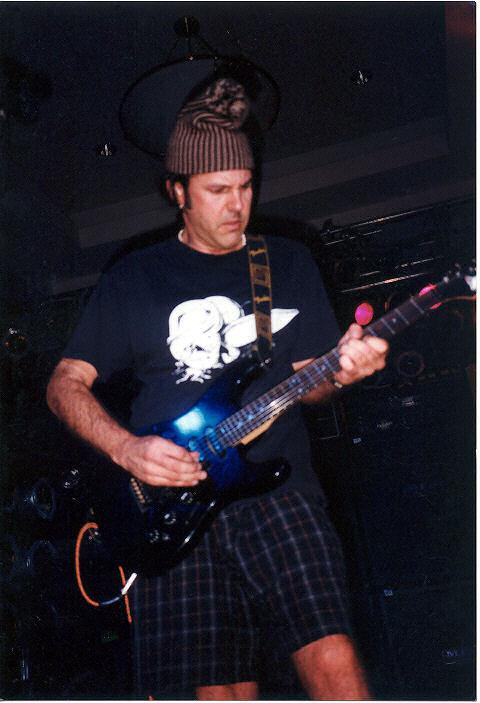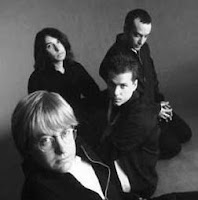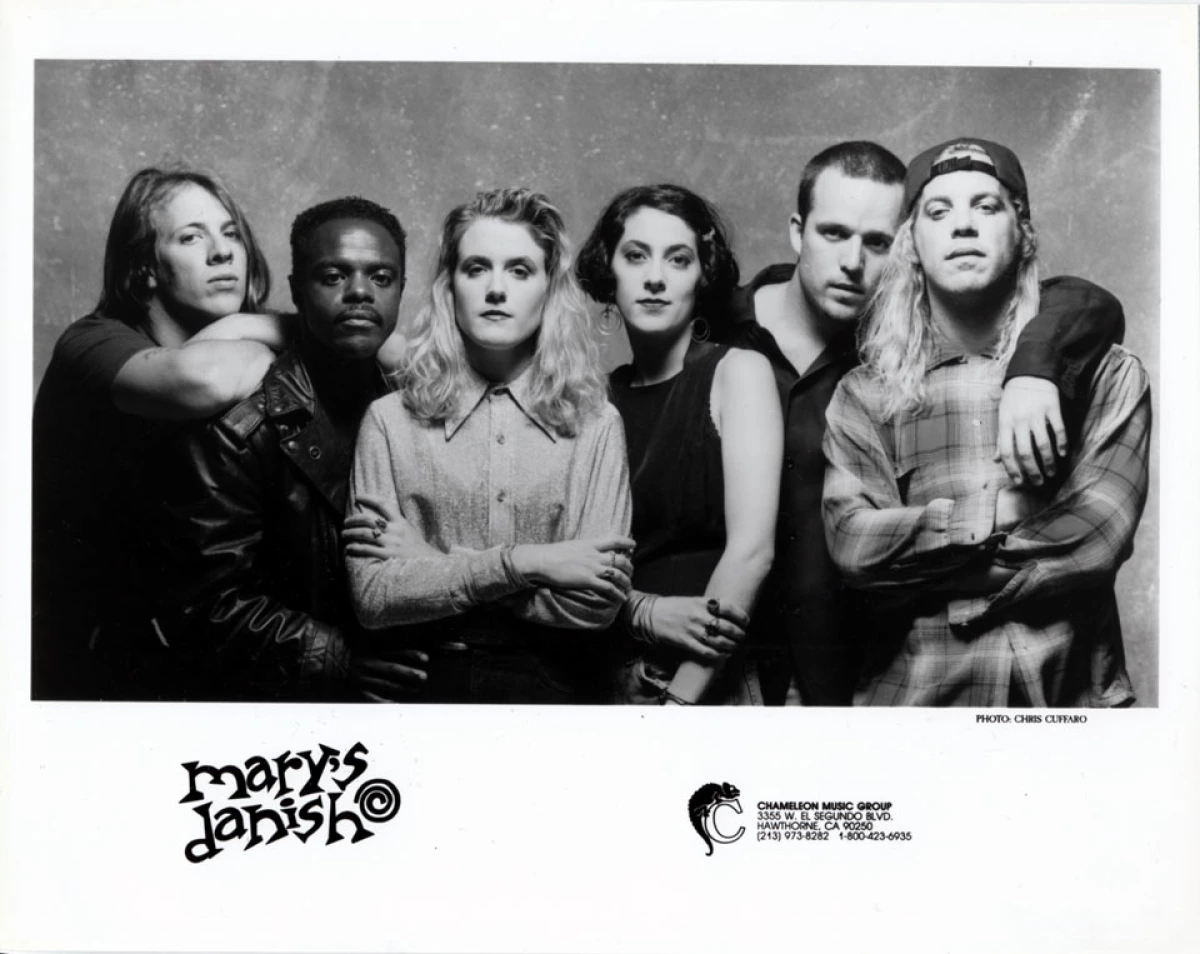Ska Defines Who I Am a Person and I will Never Turn My Back on Ska!!!: A Conversation with Dan Regan of Reel Big Fish
Discography:
Everything Sucks (Self-Released, 1995)
Turn
the Radio Off (Mojo, 1996)
Why
Do they Rock So Hard (Mojo, 1998)
Cheer
Up! (Mojo/Jive, 2002)
We’re
Not Happy ‘til You’re Not Happy (Mojo/Jive, 2005)
Our Live Album is Better Than Your Live Album (Rock Ridge Music, 2006)
Monkeys
for Nothin’ and the Chimps for Free (Rock Ridge Music, 2007)
Fame,
Fortune and Fornication (Rock Ridge Music, 2009)
Candy
Coated Fury (Rock Ridge Music, 2012)
Life Sucks…Let’s Dance! (Rock Ridge Music, 2018)
Popular Tracks: Sell-Out, Beer,
Take on Me, She Has a Girlfriend Now, The Setup (You Need This), Where Have You
Been?
Reel Big Fish were probably one of the most fun bands to emerge during this time. One of the best third wave ska bands, they were determined to stick to their roots and pretty much did. Despite multiple lineup changes and uncertain times when ska was no longer in vogue, RBF (mainly frontman Aaron Barrett) continue to this day and will probably continue to wave the flag for ska until the end of times and that’s the way it should be dammit. Former trombonist Dan Regan took time away from running his brewery around 2018 to talk about his time with the band and the overall legacy of '90s ska.
Pete Crigler: What got you interested in playing music?
Dan Regan: My family has always been in music. My grandfather came over from (then) Yugoslavia with his family orchestra when he was very young. As the years went on, the kids played jazz instruments as well as the traditional eastern European instruments. He played trombone in WWII and returned to get a degree in composition at USC. He worked at Disney as a composer and recording engineer, all while raising a family and running the family orchestra: The Crlenica Bros. His daughters (including my mom) sang in the group through the 70’s and she got a voice and instrumental performance degree from Long Beach State. So it was in my blood. They all told me not to be a musician, and look what happened. I played all through school and...
Pete: How did you come to join RBF and what was the band like when you joined?
Dan: I was friends with Tavis (former trumpet guy in RBF) in High School. We were in all the groups at Long Beach Poly High and he had a car by our junior year. He was already into Ska and wore Docs and a derby. I was a dirty hippy that also played in a punk band called Flabergasm. He picked me up one night and we went to see RBF play at a coffee shop in Long Beach. They were pretty good but needed horns. Coincidentally, the next week we saw a flyer in the local record store that said RBF was looking for horns. We went to the audition and got the gig. The band had just gone through major drama and were re-forming as a ska/punk band. They had lost their lead singer, keyboardist, trumpet player, and 2nd guitarist. The lead guitarist had just reformed the band with bassist Matt Wong, drummer Andrew Gonzalez, and guitarist Pete Berberich. Aaron was now the lead singer, band leader and visionary. A sax player (Adam) joined with me and Tavis. We were all 17 and still in high school. Aaron was a couple years older, out of high school, and working at Subway Sandwiches. Matt and Andrew were older and could buy beer.
Dan: Aaron is the main songwriter. All the songs are about him or from his viewpoint. The band is a caricature of his identity. In the early days, his influence was the other bands in the local scene, while Matt and Andrew liked “groovier” bands like 311. The two factions mostly agreed on Led Zeppelin and Sublime, so I would say that formed the foundation of their sound, with punk/ska layered over the top. Because us horn guys were pretty young, we were pulling our ideas from the music we know: jazz band and marching band. That’s why all the horn parts sound like anthems.
Pete: What was it like recording Everything Sucks?
Dan: It was weird. I had to sneak out of the house because I was grounded for getting bad grades. Was up all night playing music and my school work was suffering. Tavis would park down the street and I would escape to go record. The main bits were already recorded and we were layering in the horn parts. The older guys were paying for the recording by pocketing cash while all working at the same coffee shop. By that point, I had become unreliable because of my grounding. Aaron had gotten his friends Scott Klopfenstein and Grant Berry from the local band The Scholars, to fill in and I was impressed to see that Scott could sing really well. When I heard the finished record, the songs sounded so amazing with multiple vocal parts. That really nailed our sound.
Pete: How did the band come to sign with Mojo and how do you feel about it now?
Dan: We were taking lots of meeting with record labels at the time. No Doubt and Sublime were all over the local radio, and so labels were snapping up Long Beach/OC Ska bands like grandma grabbing free mints while leaving the restaurant. Dance Hall Crashers had just signed a deal and we were the next “biggest” local guys on the list. We were playing a show out in Riverside, at the Barn, with the Skelatones. They were from LA and had brought a new band called Goldfinger to the gig. Goldfinger were some ex-Hollywood glam rock guys who had put together a pop punk band and were looking to get some ska flavor on their new record. They had just been signed by a new label called Mojo. When the Lion King won the academy award for best soundtrack, the team decided to build a recording studio. Hans Zimmer based his soundtrack work out of there while the producer who had recorded with him, started Mojo records. Anyway… Goldfinger liked our vibe and asked if Scott and I would go record with them. We went with the intention of getting a deal with Mojo. It all worked out for both of us and the party started. I love the gang at Mojo. They were doing their best in a crazy business that was flipped on its ass a couple years later. To counter technology (the internet) moving way faster than the old labels could keep up, the bigger labels just started buying all the indies up. We got moved around from parent label to parent label and each time, a new team would become our handlers. Since we spent most of our time on the road, we pretty much ignored it. Our goal was putting on an awesome show every night, in every town.
Pete: What was it like recording Turn the Radio Off and working with John Avila?
Dan: It was great working with John. He is a real musician’s producer. Loves to just play around and think up cool parts. Very supportive and creative. We were huge fans of Oingo Boingo, so becoming friends with a legend was a dream. The studio itself was a trippy place to hang out in. The guys were just starting DreamWorks, at any given time we could see Spielberg taking meetings with Hans. At one point, Hans was working on the soundtracks to The Rock and Twister at the same time. We were like the punk kids in the hall. There was a lot of pressure to update our music to a more professional setting. We were better than the other bands in the local scene but pretty lose by big league standards. We also struggled with whether to put our older (locally known) songs on the record or record all new ones.
Pete: What was the inspiration for a song like Sell Out?
Dan: I think the story is that we were at the video shoot of the new Dance Hall Crashers video. The band were local heroes, so they got all the local bands and kids to be in the audience for the live shots. Aaron heard kids in the audience calling Dance Hall sell-outs and went off on them. He wrote the song about how we’re all guilty of making fun of other bands for what we would do (and did) in a heartbeat: go pro.
Pete: What was success like and how did everyone deal with it?
Dan: Everyone went through it in their own way. I was a real punk about it. I was kinda the eye-rolling guy. Looking back, I think Aaron had a pretty good sense of it. The success allowed us the chance to play awesome shows in front of people, which is all he ever wanted. We never made much money. I was able to pay my rent and stuff, as long as we stayed on the road. We came in at the very end of the old record company model. The internet changed everything after us. We’re the ultimate gen X band. Stuck between boomers and millennials. Nobody really got into heavy drugs or anything like that. We drank and some of us smoked weed, but since we stayed busy, it helped stay focused, because there was a show every night.
Pete: Was there any pressure
when it came to making Why Do They Rock?
Dan: There was tons of pressure at the start, because of all the success of the first album, but the scene was already on its way out commercially speaking. Swing was the big thing on the radio and rap -metal was about to dominate as a reaction to the poppy horn driven sound of the late 90’s. I think everyone understood this as the recording went on and we ended up just having fun and recording our version of a Queen album. John Avila took the producer chair again and we just did everything we could think of, then edited. Everyone brought their A game.
Pete: What caused the
departures of Grant Berry, Andrew Gonzales and Tavis Werts?
Dan: I think the road got to Grant. He wasn’t the best player and got in the band because he was a fun guy and friends with Aaron and Scott. As time went on, the bar was raised and I’m not sure he could musically keep up. That being said, he always had the best taste in records. The horn section was the place to hear new sounds. He got more and more unhinged on tour and was barely playing on stage, just goofing around. Once we realized he was actually freaking out over months, we sent him home to chill and he never came back out. We’re still friends and he comes by my brewery occasionally. Andrew was consumed by the money aspect of the band. He was older than the rest of us and had a kid, so the pressures of making a living weighed on him more. He was always working an angle and looking for an untapped way to make money in the music biz. He was way into the merch side of our endeavor. He ended up leaving to pursue something to do with that. In both cases (even with Me, Matt Wong, Tyler, Carlos, and Ryland) one could tell the end was near and the question was always would the person realize they were miserable and bringing the others down or would the group have to step in. Tavis was really the only surprise. He and Aaron got in a fist fight and he quit. I forget what it was about.
Pete: Was it easy or difficult
to bring in newer members over the years?
Dan: No. We were always surrounded by good musicians. Often, guys would need a break and skip a tour. We’d have to bring in a sub and usually that would be the person to get the gig eventually. A big part of it is getting along on the tour bus, so once someone has done a tour and it was fun, they’ve kinda locked in their spot as the understudy. I brought Billy on to cover for me while I we had our second kid and we had an understanding the someday he would be my replacement. It was very relieving knowing I was leaving my brothers with a good player and solid dude.
Pete: What was the reason for the long wait leading to Cheer Up?
Dan: As time went on, Aaron got less and less interested in recording albums. We went through a few producers and finally settled on a guy. We were a touring band at that point and had stopped having the experiences that informed all the original tunes. All the early stuff was about being a scrubby little band and it took a while to zero in on writing as the band that is chugging along.
Pete: Were you happy to finally be off of Jive and what led to that departure?
Dan: Yes it was an easy transition. Since we had started doing all of our own marketing and recording, it was pretty natural to slip back into that. The labels had dropped the ball so many time we were finally dropped, we were already doing everything. We pretty much begged to be let go.
Pete: Was it difficult when Matt and Scott departed?
Dan: Like the others, Matt was pretty miserable and so it took about a year for him to finally pull the ‘chute. Derek had been filling in for him on multiple tours so we were pretty secure with him as the guy when Matt finally made the call. We’re here getting drunk on the tour bus in a parking garage in London, and he called Aaron on the tour manager’s cell phone from home. Aaron just put the phone, looked at Derek and said, “You’re in the band now.” Scott was hard for me. We were good friends, so it was like a divorce. There was no anger or anything. No fight. He just let everyone know that that was his last tour. It was good to get Matt Appleton in the band, because he’s very talented like Scott. He can play everything and is a good recording engineer. On top of that he’s got tons energy and really breathed new life into the group. Matt and I became best buddies and remain close to this day.
Pete: What ultimately caused your departure and do you in keep in touch with anyone?
Dan: I always promised my wife that when we had a second kid, I’d look for work at home. I was able to keep touring after my son was born, but eventually she caught on and found me a job. I had already been working on the business plan for what would become Liberation Brewing, so I finally called it quits in October of 2013, after nearly 20 years I’m still friends with everyone. I keep up with most of the past members too. John, Derek, Matt and I were the brewery explorers for the last couple years I was in the group, so we were really close and Billy was a good fit, when I split.
Pete: What are you currently up to?
Dan: I have worked a few jobs and now have a steady office job. I opened Liberation Brewing Co. in May of 2018 in Long Beach, and it’s really fun. Two kids and another on the way. I don’t play much music these days, mostly just practice in the garage as therapy. I’m pretty sure the invitation is open to join the gang on stage whenever they’re in town. Maybe someday.
Pete: What do you think of the impact of alternative rock in the ‘90s?
Dan: I think it was a reaction to the moodiness of the alternative scene, but still had the DIY aspect. It made people go to shows to dance and really fostered every town’s local scene. Parents felt okay sending their kids to the ska show at 16, so I think a lot more kids got exposed to interesting music and their local scenes at a younger age, than in the past. Lot’s more bands were started and it’s cool to see where it went from there. If Reel Big Fish could do it, anyone could!
Pete: What do you hope RBF’s legacy will be?
Dan: A lot of what I said in the last answer. I feel like we went from being at the vanguard of our local scene to being at the vanguard of every town’s local scene. It’s probably why we never got huge, but it’s why we were successful for so long. Every show was a local show and continues to be. It represented that weird time in a kid’s life when they can drive, but can’t drink, so you can go out and have good clean fun dancing with your chums. I also hope we inspired a generation of band geeks. Until the ska craze of the 90’s all we band geeks had to look up to were jazz and classical players. It seemed so unattainable. But I hope that kids seeing regular guys like us on stage jumping around with horns and having fun, made more students playhorns and become way better than me. Haha!






Comments
Post a Comment